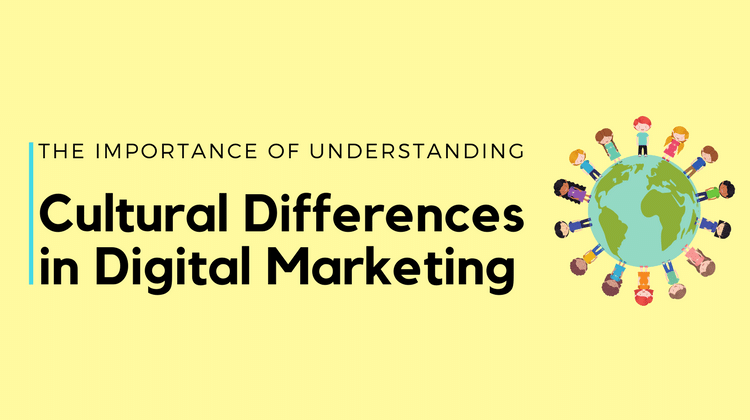
Sponsored by The Shannon Company:
Today, we exist in an intrinsically connected world. A vast amount of social and cultural changes have occurred, causing fundamental shifts in the ways in which we do business. Global businesses now require understanding and a communication of cross-cultural differences across borders.
It is, therefore, imperative that these cultural differences are recognized in the realm of digital marketing. Sometimes we fall short of recognizing just how diverse our cultural make up is, missing out on key opportunities for a digital marketing agency to connect with all target markets in a meaningful way. In order to get targeted digital marketing right, brands need to understand and respond to their customers at an individual level; a broad segmentation approach is no longer sufficient. Read on to find the reasons why understanding cultural differences is imperative to a successful digital marketing strategy.
Consumer Habits
Businesses tailor their products and services to their customers’ preferences. Often, this will depend on factors such as the geographic climate. For example, McDonald’s offers different products depending on the culture and climate of the store’s location. An understanding of cultural consumer habits allows digital marketers to better understand the marketplace for their products and services and to recognize where their opportunities for growth are.
Cultural habits also have a significant impact on which digital medium will be most effective for a certain area. For example, consumers in the US dedicate more time to internet platforms, clocking in approximately an extra hour daily when compared to the UK. In turn, Japanese people have the smallest appetite for Facebook with only 3% of users on the site. This type of knowledge can save you millions of dollars on a wasted digital marketing campaign that is reaching only a small segment of the targeted population.
Design
When comparing the designs of popular social platforms across the world, it’s easy to see the major differences. In the West, we’re much more text-oriented and prefer a minimalist look. In comparison, however, Chinese social media platforms demonstrate a preference for a busy and cluttered look.
Digital marketing needs to account for these global design preferences in order to reach the target audience. Important design factors such as colors and symbols are varied in their meanings across cultures. For example, Latin Americans consider blue to be a color of mourning, while Americans consider the color to be one of calmness.
Using symbols may also not have the effect you intended. In Latin America and parts of the Middle East, the thumbs up sign is perceived as a rude gesture.
Religion
Religion can play a huge part in how you market to consumers. When marketing in countries where religion is present in the law and prevalent in society, it’s important to make sure you have a good understanding of what is and is not acceptable. Even if you don’t have a brick-and-mortar presence in a particular country, you should still work with someone from the area to gain a true perspective and connect with local customers.
For example, Sharia law is the moral code and religious law for the Islamic faith — a law which operates in countries including Pakistan, the UAE, and Saudi Arabia. Under Sharia law, food must not be advertised during Ramadan, and scantily-clad women in marketing materials are forbidden. Researching the target areas for your marketing efforts is imperative to ensure that your brand campaigns are prepared and developed with localization and cultural sensitivity in mind.
With so many different cultures and customs, it can be easy to confuse, anger, or offend people when marketing your brand on the global stage. A ‘one-size-fits all” content and communication strategy is no longer sustainable for digital marketing. To adapt to global forces that are shaping the world’s economy, it’s vital for digital marketing experts to understand how to reach the growing markets through localization strategies, cultural sensitivity, and customization to the online behaviors of all cultures.
About the Author
Laura Costello is a recent graduate of a Bachelor of Law/International Relations program at Latrobe University. She is passionate about the law, the power of social media, and the ability to translate her knowledge of both common and complex topics to readers across a variety of mediums in a way that is easy to understand.